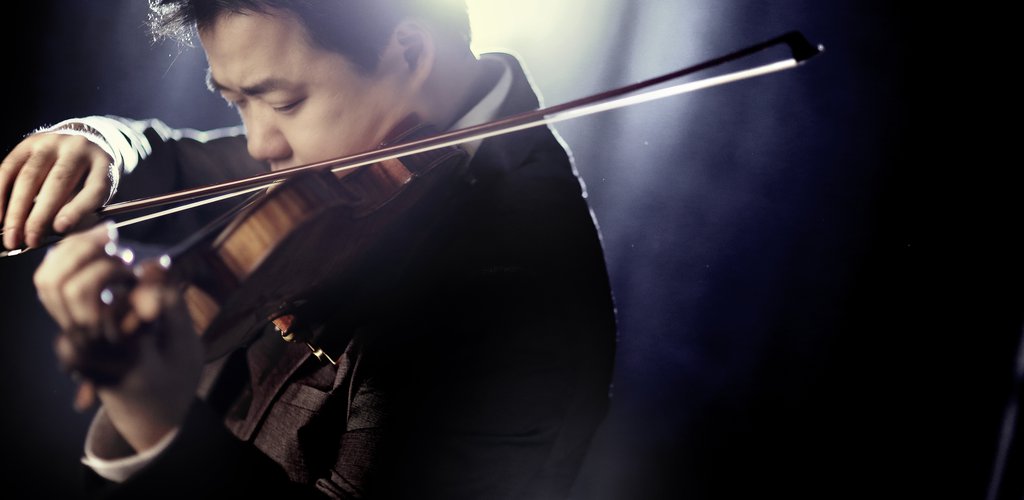You mentioned in an interview before that currently Ivan Fischer is the most famous person in your cellphone. In September your are going to perform together again in Budapest. How does it feel like to play music with him?
The main thing that inspired me was just how normal a great musician can be. I met Ivan for the first time when I was a teenager; right when I arrived to the UK from China; I previously only knew him through CDs. It’s always very natural and normal with Ivan.
You are going to play a rarity, L’arbre des songes of Dutilleux. Do you feel at home in this musical piece? How would you describe it?
I always like to try and feel as though I am part of the piece. I always try to feel at home with every piece as it’s the nature of my job.
According to Maestro Fischer, listening to your interpretation of this piece, noone could tell that you are not French. Is he right?
I don’t usually take notice to what nationality I am or which nationality the composer is. It is my job to serve the music regardless of this.
This won’t be the first time for you to come to Budapest, not only did you play together with the Budapest Festival Orchestra, but also with the Liszt Ferenc Chamber Orchestra. Do you feel a common charasteristic in the mentality of Hungarian musicians?
Music is a common language and we use this to communicate. Hungary has a strong and rich sense of strong musical history and I do feel this when I play with Hungarian musicians.
The festival in which you are going to play music together with BFO is called Bridging Europe. What do you consider to be the best tools to „bridge” different countries?
Music is already the best way to communicate as it is the common language. For instance, when I am playing a European piece with a Hungarian orchestra, I don’t feel like I am a Chinese musician.
You were born in China, but learned in London and now you live in Berlin. Was it an easy way from China to the continent of Europe? I suppose that you had to get acquainetd with different cultural habits and surroundings.
Absolutely – I think I could say that at the beginning it was difficult. I was 17 years old when I moved to London to study at the Royal Academy of Music – I had to learn the language, learn to live by myself; everybody can have these experiences at one stage in their life. Learning the violin is also different in Europe than how I was taught in China.
How is your relationship with your mother country now?
It will always be my home country. I go back there often at least 7 or 8 times a year; there will always be a connection there and I feel responsible to help with education and performance in China.
It is always underlined in the critical reviews about you that your playing is very lyric and emotional. Do you see this as one of your strongest points too?
I do what the music requires me to do. I have an idea of the different styles of music and how to portray them. I have also worked with so many different and great musicians which has helped influence this. Be it Romantic Russian or Italian, which is clearly passionate or Classical German lyrical passages; I have to understand how they need to be play differently.
You said that when your son was born you could not stop crying. Did the arrival of him add an extra emotional quality to your playing?
Not directly, but indirectly - absolutely. This is a human being that now exists in my life and he is so close to me. This connection stays throughout the rest of both of our lives no matter what happens. This has influenced and affected my life; playing is part of my life so this indirectly has influenced my playing.
Do you find it important that children meet classical music as soon as possible? For your father this was very important.
Absolutely. It doesn’t have to be classical music necessarily, just music in general, though classical music is the most sophisticated of the musical arts.
Your career almost got stuck when the first teacher you meet said that your pinkie is too short. You always say that you did not want to be a professional violinist, it has just happened. Have you ever had any other career or profession in mind?
It’s not that I didn’t want to but it wasn’t like I had to become a professional violinist. If I wasn’t a violinist I would probably be a chef. I feel as though playing and cooking have a lot of similarities – they are both arts. If you can deliver your job well and enjoy doing it, in turn, everybody involved can enjoy it – be it eating Italian food or listening to German music.
What are the hobbies that fill you up?
I really enjoy cooking and photography. Again, I feel as though these two subjects have many similarities. I think you can quite easily appreciate of the outcome of food just as well as appreciating a photograph and all the memories and emotions it evokes within you. I used to take landscape photographs because I travel a lot, but now I tend to take a lot of photos of my son – and even though he’s only two and a half I really enjoy looking how much he is changing within these photos.
Do you have a favourite Hungarian food?
Goulash and halaszle are both delicious!


